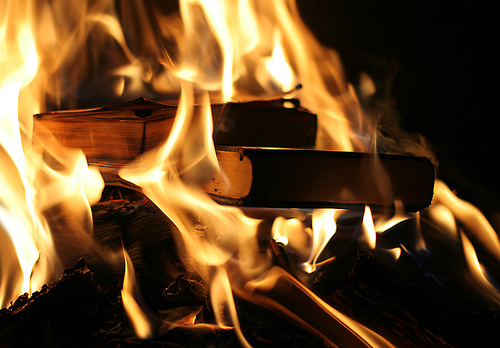1- Why were most of the people unwilling to stand up for their rights?
I don't think they knew or they just did not care and the ones that did know (Faber) were too afraid to do anything about it.
2- Is the same ending inevitable in human society, with or without censorship?
I want to say that we do not have to always follow the same cycle but every society in the past will prove me wrong.
3- How would the author include the internet if he rewrote it knowing where society is today?
I think the internet would just be censored similarly to what China does. The only censor parts that they do not like.
4- How come Montag did not have any friends that helped him through his journey like in most stories?
5- For a book with a pretty bleak outlook, why the positive ending?
Humans need something to look forward to or something to work towards. It is just how we are. The hope of rebuilding a better society gave us that dream we all need.




